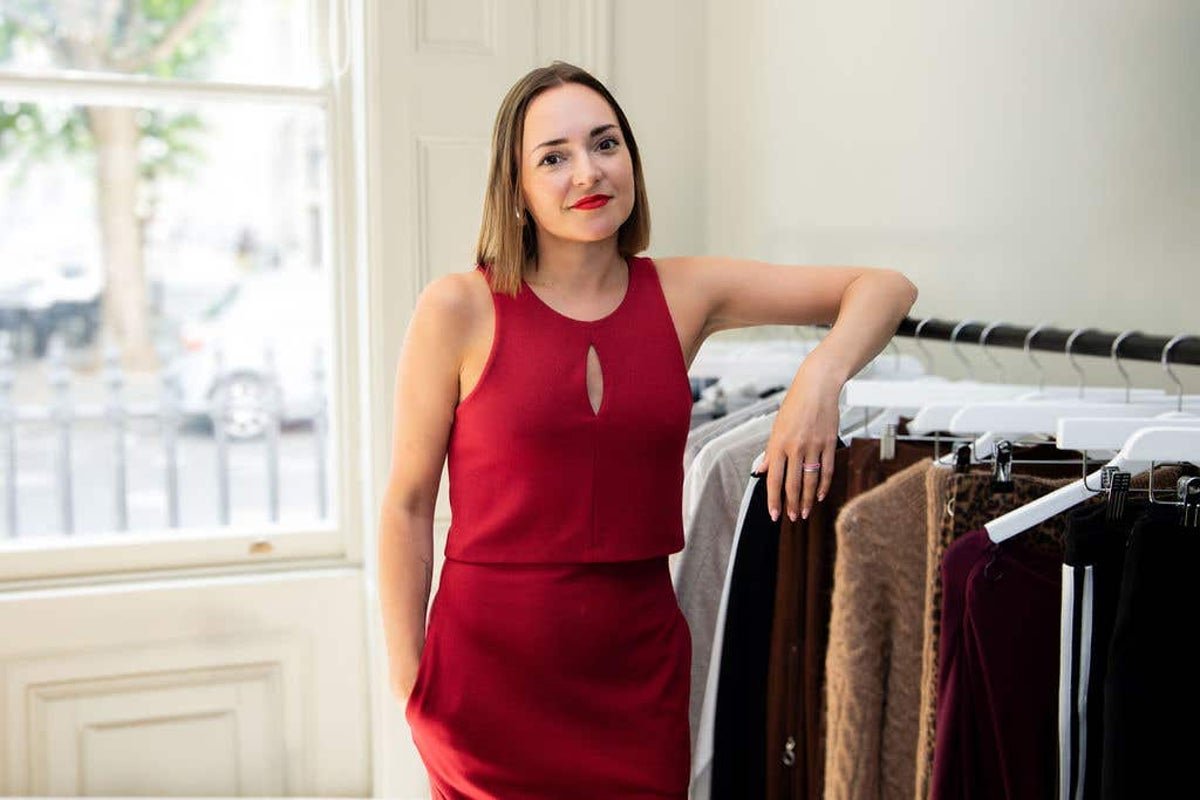When Victoria Jenkins became disabled in her 20s, she had a stark realisation: despite over a decade working in the fashion industry, she had never seen a single collection that catered to people like her.
“I’d worked on ranges for some of the biggest names in British fashion,” she says, referring to roles at Victoria Beckham, Jack Wills and All Saints.
“But when I became disabled, I saw it all differently. The clothes I’d spent years helping design no longer worked for me. And I realised – no one was designing for us.”
That insight became the seed for Unhidden, an adaptive fashion brand she launched in 2020, aimed at providing stylish, practical clothing for people with disabilities and chronic conditions.
Since then, the brand has quietly challenged the fashion world’s long-held assumptions about who gets to participate in style.
“Fashion has a duty to represent,” she says firmly, “and retail has a duty to produce.”
Unhidden’s clothing features discreet alterations most able-bodied shoppers would never notice: magnetic closures instead of fiddly buttons, wrap dresses with hidden access points for feeding tubes or catheters, trousers with soft waistbands for those with stoma bags or sensory sensitivities. But the goal isn’t just functionality – it’s dignity and self-expression.
Jenkins recalls a conversation in hospital with a fellow patient undergoing chemotherapy.
“She told me she had to fully undress every time a doctor needed to access her port.
“She just wanted to feel human again – that stuck with me. Clothes can help give someone that back.”
View this post on Instagram
It’s a powerful message that has resonated far beyond her own community.
In 2022, Unhidden became the first adaptive clothing brand to show at London Fashion Week. But recognition, she insists, isn’t the same as real progress.
Around 16 million people in the UK – nearly one in four – are disabled. Globally, the figure is over 1.3 billion. Yet most retailers still treat adaptive fashion as a niche concern.
“We are the world’s largest minority,” says Jenkins, “but you wouldn’t know that from the high street.”
Worse still, even spreading awareness can be an uphill battle. Jenkins says that promoting Unhidden through digital advertising has often been thwarted by social media algorithms.
View this post on Instagram
“We’ve had ads blocked or taken down by Meta for ‘sensitive content’ – even though they’re just photos of people in wheelchairs wearing clothes. It’s ableism built into the system.”
She believes the issue reflects a broader failure to recognise disabled people as legitimate consumers.
“You can’t claim to be inclusive if your systems silence us,” she says.
“When disabled models and adaptive fashion get censored for being ‘controversial’, but fast fashion brands can show all kinds of body exposure without issue, something’s deeply wrong.”
That lack of visibility comes with a cost – for everyone.
The so-called “purple pound” – the estimated spending power of disabled people and their households – stands at £274 billion in the UK alone. Globally, it’s over $8 trillion.
“It’s not just a moral issue,” says Jenkins says, “it’s commercial insanity.”
What frustrates her most is the persistent perception that adaptive fashion is somehow niche, or medicalised. “It’s not about bandages and beige,” she laughs, “it’s about choice – being able to wear something that reflects who you are and to dress with the same freedom everyone else takes for granted.”
Jenkins now splits her time between Wiltshire and London, running Unhidden while also consulting with brands and speaking publicly about inclusive design.
She’s not just calling for better clothes – she wants a new design culture, one that includes disabled people at every stage, from concept to campaign.
“We’ve seen inclusive marketing,” she says, “but marketing isn’t the same as inclusion. Representation without functionality is just optics.”
Still, she’s hopeful. Younger designers are starting to question the status quo. Conversations around body diversity and accessibility are becoming harder for brands to ignore. And consumers – especially Gen Z – are increasingly demanding more than tokenism.
“Inclusion isn’t a trend. It’s overdue,” Jenkins says, “and the industry will either get on board – or get left behind.”
#Fashion #duty #represent #designer #mission #style #accessible


